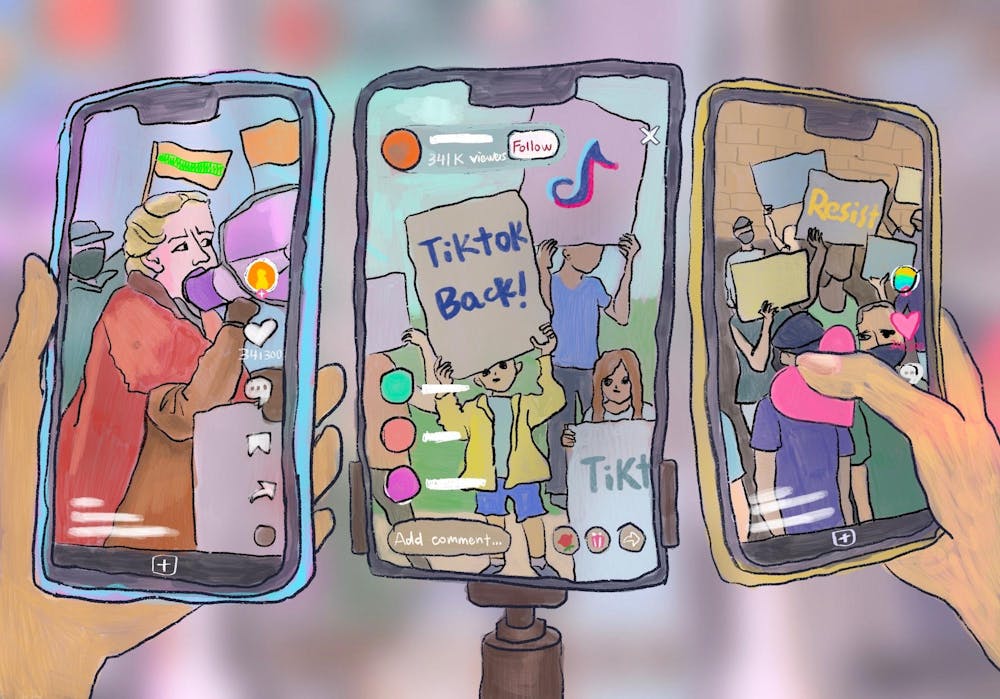On Friday, President Trump granted ByteDance, the China-based company that owns TikTok, a 75-day extension on the deadline to either sell the app or have TikTok be banned in the United States.
The move was the latest action that has kept TikTok’s future in limbo in the U.S.
On Jan. 18, a federal ban prevented people in the United States from accessing the TikTok app. In January, after Trump signaled support for delaying a ban, the app came back online after around 12 hours. On Trump’s first day in office, he signed an executive order to extend a ban by 75 days. In mid February, the app returned to the Apple App Store.
With over 170 million active monthly users in the U.S., the app has gained significant popularity over the years. But what keeps people coming back?
TikTok’s “algorithm is designed to show us content that’s particularly engaging and is going to make us want to keep watching and keep coming back, which makes it harder to turn the app off or to put the device away,” said Jacqueline Nesi, an assistant professor of psychiatry and human behavior at the Warren Alpert Medical School.
The app’s endless scroll feature also keeps users engaged because there is no end to content — and no signal to the brain to stop, Nesi added.
Although social media use can negatively affect some students, Don Dizon, a professor of medicine and surgery at Warren Alpert, expressed concern about the stereotype that social media use is always “bad.”
Dizon, who creates content on TikTok, added that many “vulnerable people” — such as those dealing with depression or struggling in school — look toward social media for support.
Nesi explained that the health effects of social media differ from person to person.
“The amount of time spent can become excessive and get in the way of activities important for mental health,” Nesi said. But exposure — “the things you are seeing and doing when using social media" — is also a factor, she added.
Sarah Frank ’25 began using the platform to seek answers to her questions about the college admission process during the COVID-19 pandemic, she told The Herald. Now, she uses TikTok to share her experiences with and advice on navigating this same process for younger students.
“As a viewer, TikTok has been detrimental to my productivity because I am easily distracted, and (it) trained my brain to crave that stimulation,” Frank said. “As a creator, it has enhanced my productivity because if I make a video about essay writing, it motivates me to begin to write my essay.”
Still, Frank said, there have been moments where the platform has negatively affected her mental health.
“I made a video about the election back in November, and the video got onto the side of TikTok that it was not intended for,” she said, adding that she received various comments “shaming me and other Brown students.”
Some Brown students don’t use the platform at all. In an email to The Herald, Kyra Chen ’28 wrote that she stopped using TikTok because it was taking up time that could have been put toward completing assignments.
“I think using TikTok is fine in moderation, but it’s very easy to waste a ton of time scrolling,” Chen wrote.





